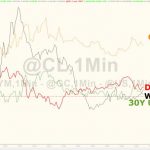“China’s presence in Europe is visible across the board whether in China’s recent purchase of several hundreds of millions of euros of government bonds in the eurozone, particularly Spain or Greece, or in other large-scale investments too, such as the acquisition of Volvo by the car maker Geely,” European Trade Commissioner Karel De Gucht said.
Speaking at the Shanghai World Expo, he said he was confident Europe’s salvage package for 860 billion euros ($1,097bn), has been very effective in easing the sovereign debt crisis.
“I am quite confident that the euro is in good shape again.”
The trade chief added that the eurozone bonds China had been buying from Spain and Greece were a good investment and would keep their value.
He estimated that China had spent around 420 million euros buying Spanish and Greek bonds, but could not confirm it.
“There is no risk at all to the Chinese treasury.”
Global concerns over China’s protection of intellectual property has flared up in recent months and De Gucht said European companies were becoming increasingly worried.
Indigenous innovation policies, where China encourages government departments to buy locally made products from Chinese companies, would force European firms to register as a Chinese company in order to get access to the public procurement market.
However, De Gucht said China had already started to respond.
“Some changes were made to the indigenous innovation legislation that is certainly accommodating to a certain extent some European worries,”
China has revised its offer to join the World Trade Organisation’s government procurement agreement. De Gucht said the opening up of the public procurement market would help resolve the ongoing Doha saga if a substantial package was reached.
“The proposal that China has been putting on the table is largely insufficient, so we think additional offers should come on the table,” he said, without specifying what they should be.
Rare earths
Access to China’s raw materials is a hot topic in Europe and De Gucht said the current case the EU had against China was a case they would win at the WTO.
“We have a lot of understanding that a fast-growing economy needs a lot of raw materials but it is not the right way because it creates monopolies which distort the market.”
China holds about 90 percent of the world’s reserves of rare earth materials, which are used in a number of electronic devices, digital displays and military applications.
Foreign traders, manufacturers and military strategists have grown increasingly vocal about Chinese moves to reduce the volume of exports of rare earths.
However, China says export controls prevent wasteful exploitation, support volatile international prices and encourage high-tech manufacturers to shift operations to China, where rare earth prices are cheaper.
China will not block exports of rare earth metals, premier Wen Jiabao told a German trade delegation earlier in July.














Leave A Comment